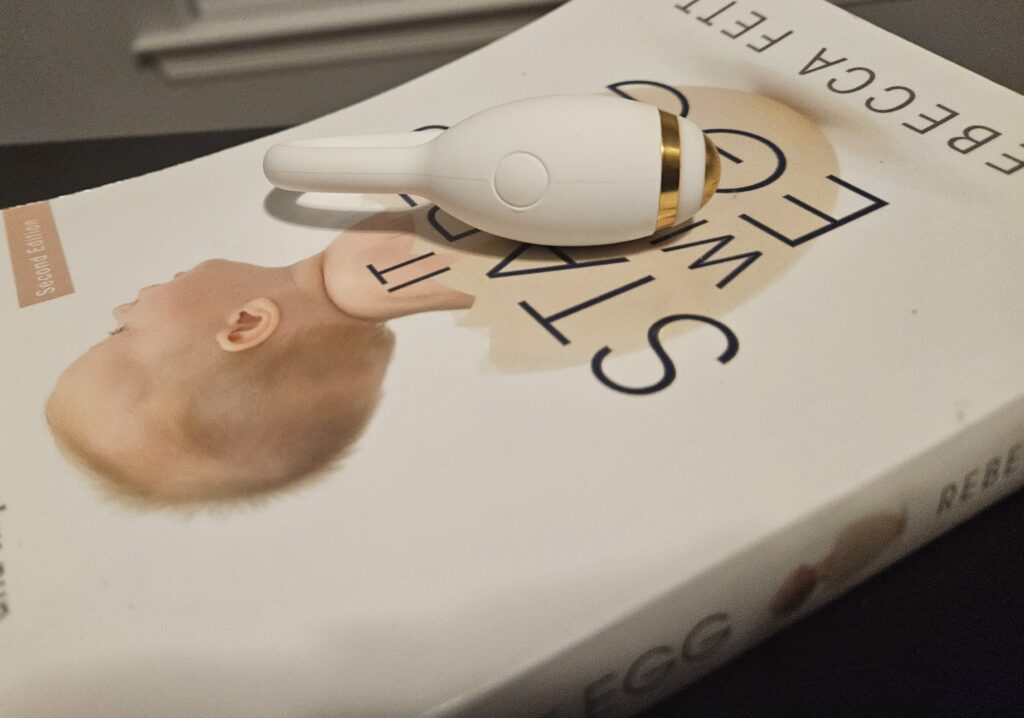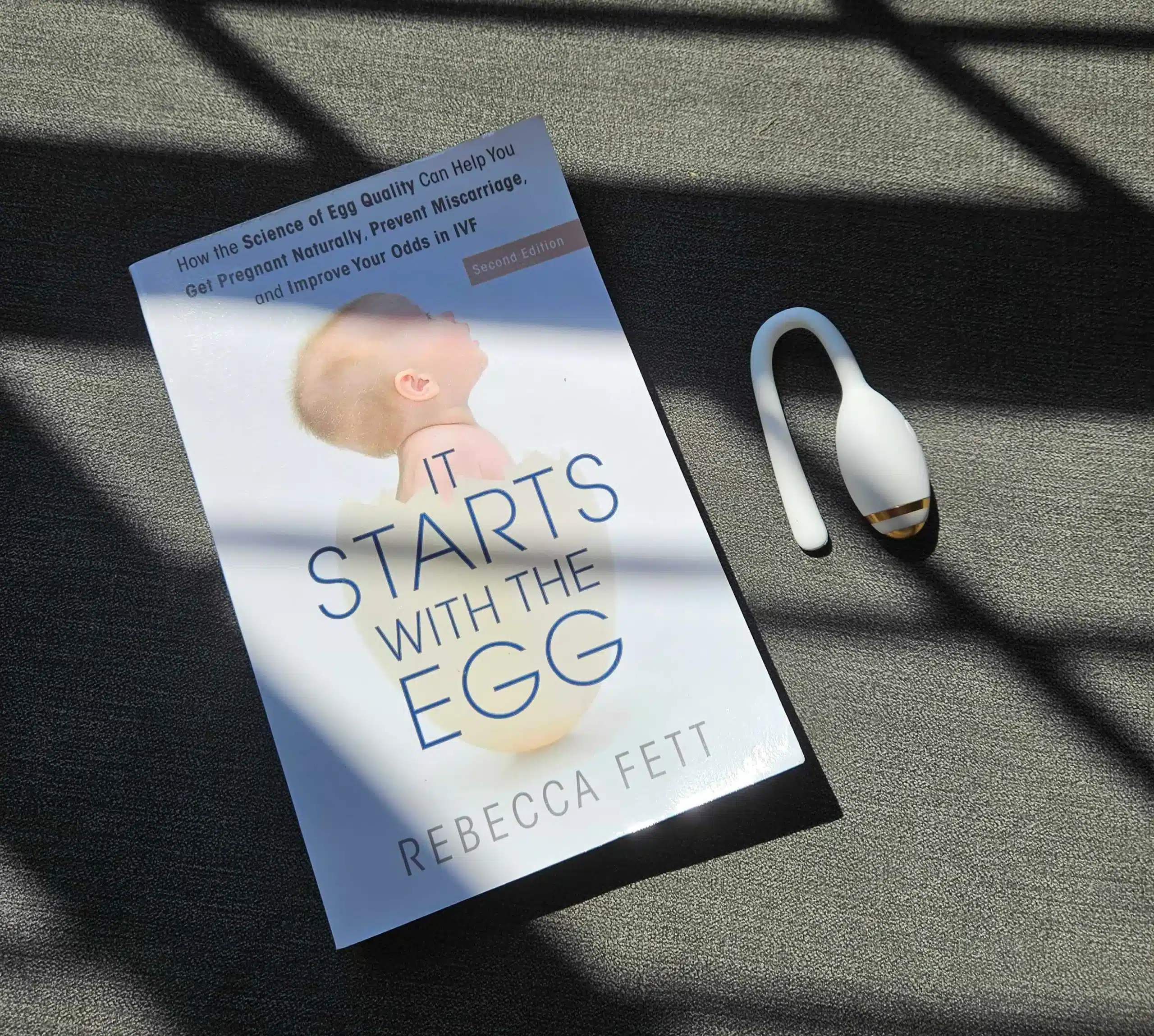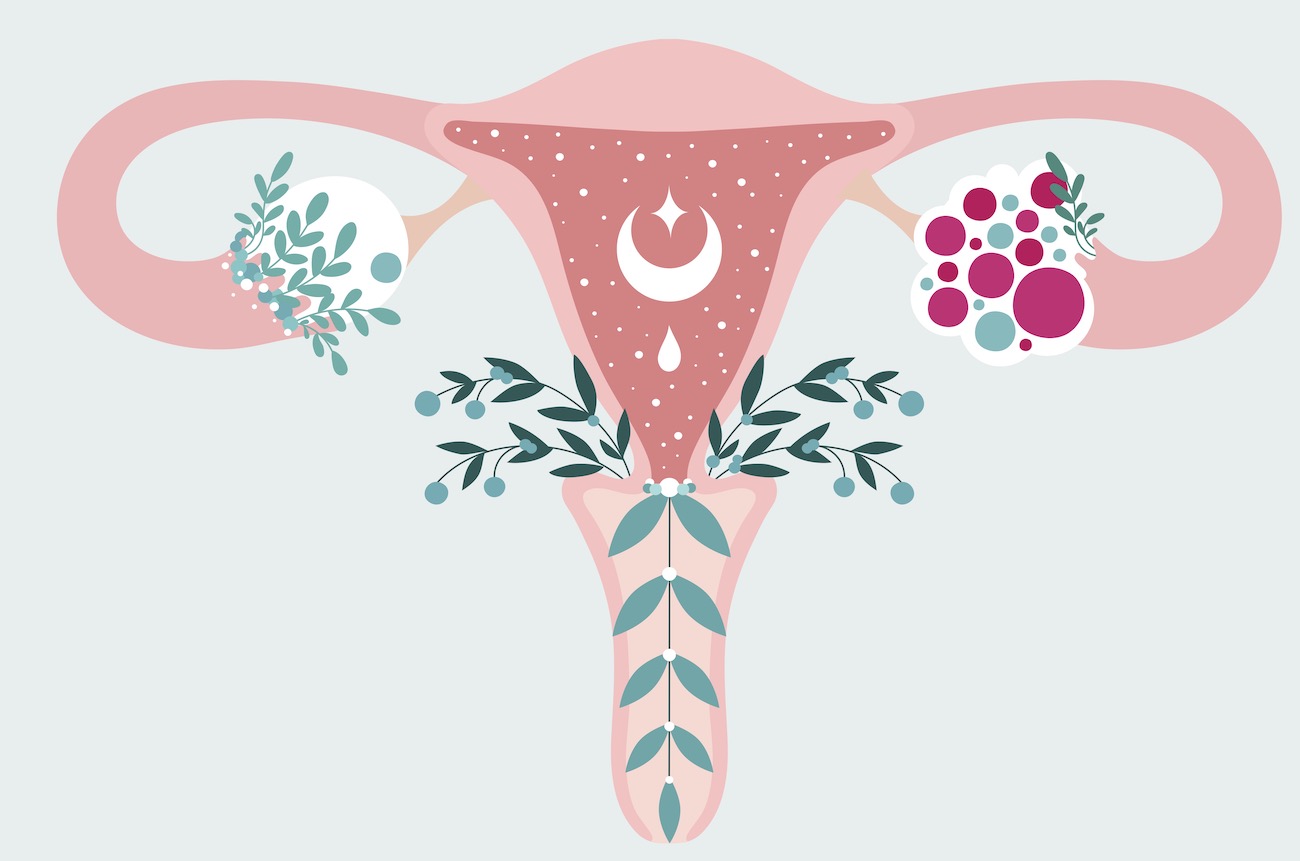I thought I was doing everything right.
I switched to glass containers. I ditched my scented laundry detergent. I even started taking CoQ10 and NAC every day.
But month after month, I still wasn’t pregnant.
It wasn’t until I read It Starts with the Egg that I started to understand what was really going on. Yes, egg quality matters. But the other half of the equation? Timing.
And I realized I’d been timing things all wrong.
Why Tracking Cervical Mucus Is the Missing Link

Most fertility advice focuses on ovulation tests, apps, or calendar predictions. But none of those actually tell you what’s happening in your body right now.
Cervical mucus is the body’s most reliable sign of approaching ovulation. It changes in texture and quality as your body becomes more fertile, giving you a multi-day heads-up about when you’re most fertile. Fertile cervical mucus actually keeps sperm alive for up to 5 days, increasing the chances that they’ll be ready when your egg is released.
“The presence of fertile-quality cervical mucus is the most reliable sign of fertility.” — It Starts with the Egg
Yet most women don’t track it either because they’ve never been taught how, or because it can feel confusing, awkward, or inconsistent.
That’s where kegg comes in.
Why I Decided to Track Cervical Mucus with kegg

After reading about the importance of cervical mucus, I knew I wanted to start tracking it. But using my fingers every day to check consistency felt overwhelming and subjective. I couldn’t always tell what I was looking at, and the process didn’t feel consistent enough to rely on. I wasn’t about to dive into a 6 month course to learn how to do it, so I needed tech to help.
Then I found kegg.
kegg is the only fertility tracker that actually measures cervical mucus data directly. It’s an FDA-registered medical device that uses advanced sensor technology to detect changes in electrolytes in the vaginal environment, which correlate with your cervical fluid’s fertility level.
Unlike LH tests that give you a short 12–24 hour window based on a hormone spike (which we often see delayed in urine from its actual rise in the body), kegg gives you a multi-day fertile window based on what your body is doing naturally. No guessing. No messy interpretations. Just one 2-minute reading each morning, and you’re done.
It made the science from the book not just understandable, but actionable.
⏰ *Note February 1, 2026: kegg is running a limited-time offer. You can get a 6-month pregnancy guarantee (instead of 12 months). Learn more here.
kegg Made the Book’s Science Easy to Follow
kegg takes the stress and confusion out of cervical fluid tracking. It reads your internal environment and charts your fertile window with precision.
Instead of guessing with an app or stressing over sticky vs creamy, I let kegg read the data and show me my unique cycle patterns.
And it changed everything.
Why I Recommend kegg to Every Woman Reading It Starts with the Egg
If you’re already:
- Taking your supplements
- Reducing toxins
- Working on egg quality
Then the next step is to make sure your timing is right. Because egg quality is only half the story – you need the sperm to meet it at the right moment.
Final Thought
Read the book.
Follow the science.
And if you want the easiest way to time it right – get kegg. If you’ve already started implementing what Rebecca Fett recommends in It Starts with the Egg, you’re doing more than most women ever will.




